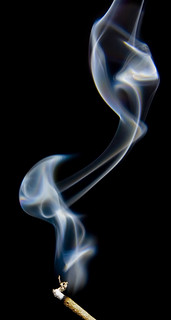

Tenants Who Smoke May Be Burning Through Your Money
Ceilings, baseboards, lungs — it seems everything smoke gets into needs replacing, and usually at great expense.
 When you have tenants who smoke heavily, you have a unit that’s going to need a special kind of deep-cleaning when that tenant leaves. You may need to clean or replace not just the paint, but the trim, the baseboards, the floors, the walls, the ceiling, the shelving, the light fixtures, the outlet panels, the drapes…and that’s the short version.
When you have tenants who smoke heavily, you have a unit that’s going to need a special kind of deep-cleaning when that tenant leaves. You may need to clean or replace not just the paint, but the trim, the baseboards, the floors, the walls, the ceiling, the shelving, the light fixtures, the outlet panels, the drapes…and that’s the short version.
What Does it Cost to Bring In a Smoking Tenant?
According to a study commissioned by the California Apartment Association and carried out by UCLA, a two-bedroom unit inhabited by a heavy smoker can cost up to eight thousand dollars to restore. And that’s not the highest estimate out there — Kennedy Restoration Co. of Portland, OR, estimated the same restoration, done to their standards, would actually cost close to $15,000!
Compared to the normal cleanup and restoration done after a non-smoker leaves, the extra work necessitated by the smoke can triple or quadruple the turnover costs. Not only do you have to scour the walls, doors, floors, ceiling, and fixtures, but you may not get rid of the smell until you seal the house or unit up with ozone generators inside for 24 hours.
Depending on the smoke damage, you may need to replace the carpet, padding, vinyl, curtains, countertops, and even entire furnishings. Anything that’s left — cupboards, cabinets, doors, floors, walls, shelving, the ceiling, and so on — will need a coat of odor-control paint that will keep the smoke smell in.
All of this doesn’t include the marginal increased risk of fire and the real increase in fire insurance premiums that come with allowing smokers to rent your property. Or the fact that, if you have multiple tenants, you may be liable for secondhand smoke effects on tenant A because you allowed tenant B to smoke next door, under the Federal Fair Housing Act.
The Real Impact
You already know that turnover is the least profitable part of renting out property. You no longer have rental income, you have to spend money on advertising, and you have to clean up the place so that the new tenants can give the place a shot. When that last list item suddenly becomes a week longer and $8,000 more expensive, your RoI starts to plummet. It can take an extra 6-9 months of solid rentals to make up for a blow like that. That’s not a scenario that most small-business-scale property owners can afford.
What Can You Do About It?
Fortunately, in a legal sense, smoking is not ‘normal wear and tear,’ which means you’re totally allowed to ask smokers for a deposit to put toward the cleanup. Clearly no sane person is going to put down $8,000, but by putting up a stiff enough deposit, you can guide them away from your property. Or you can simply ban smoking on your property altogether and put in a hefty contractual fine for anyone caught breaking the ban — you’ll be narrowing your market, but you’ll be saving yourself a lot of hassle in the long run.

Comments